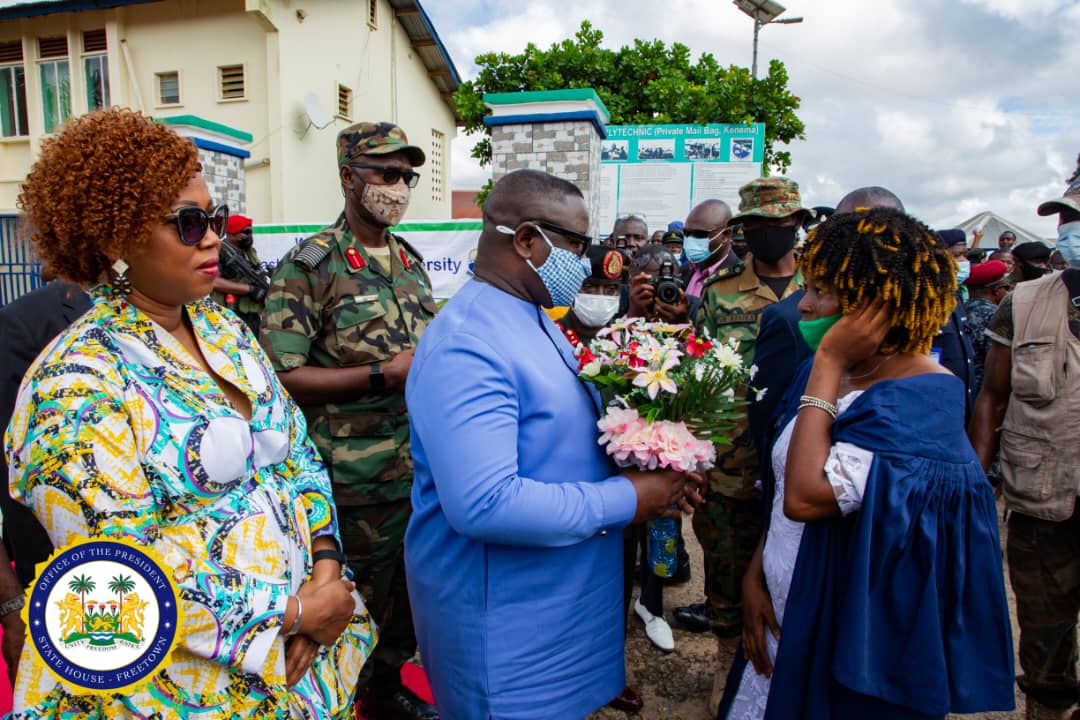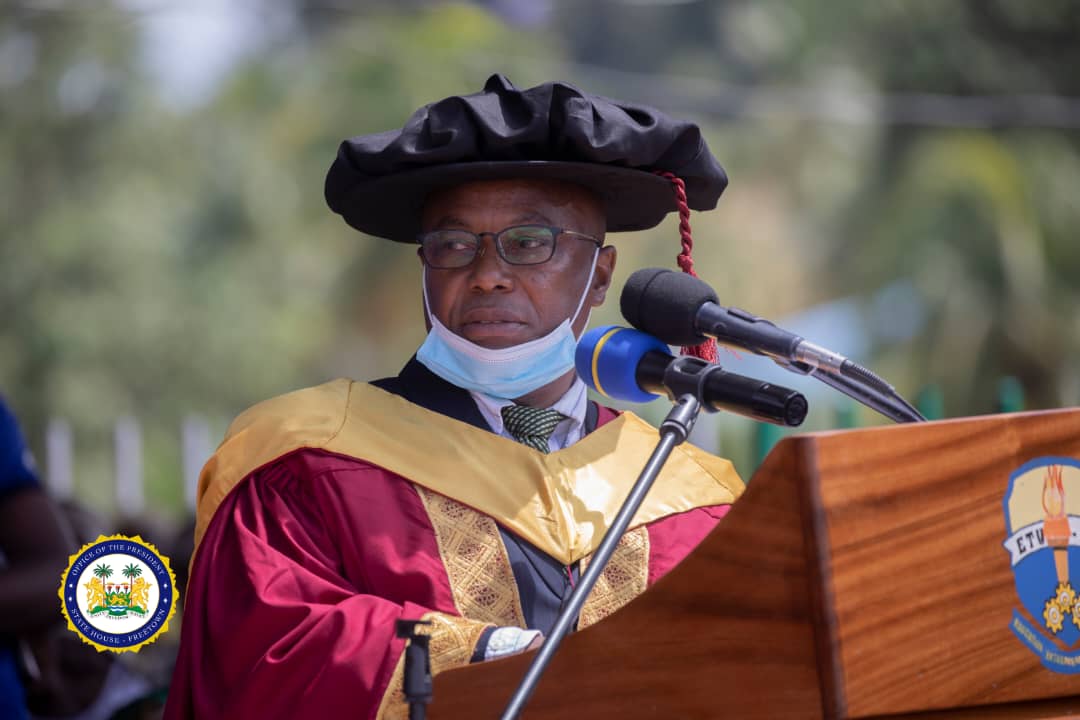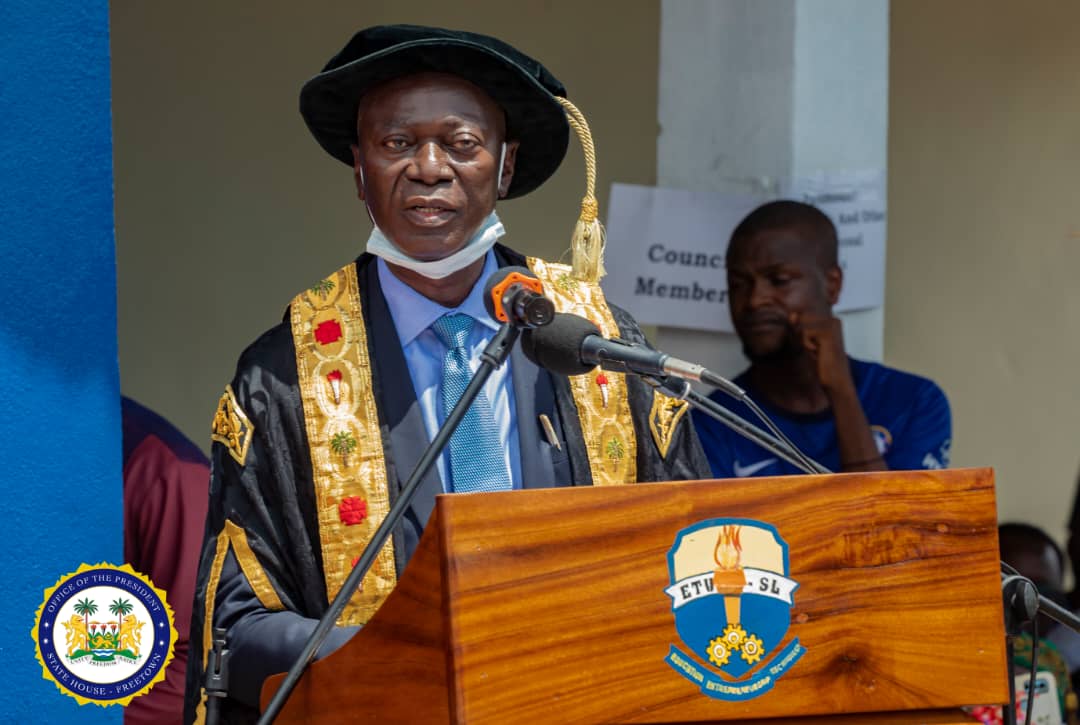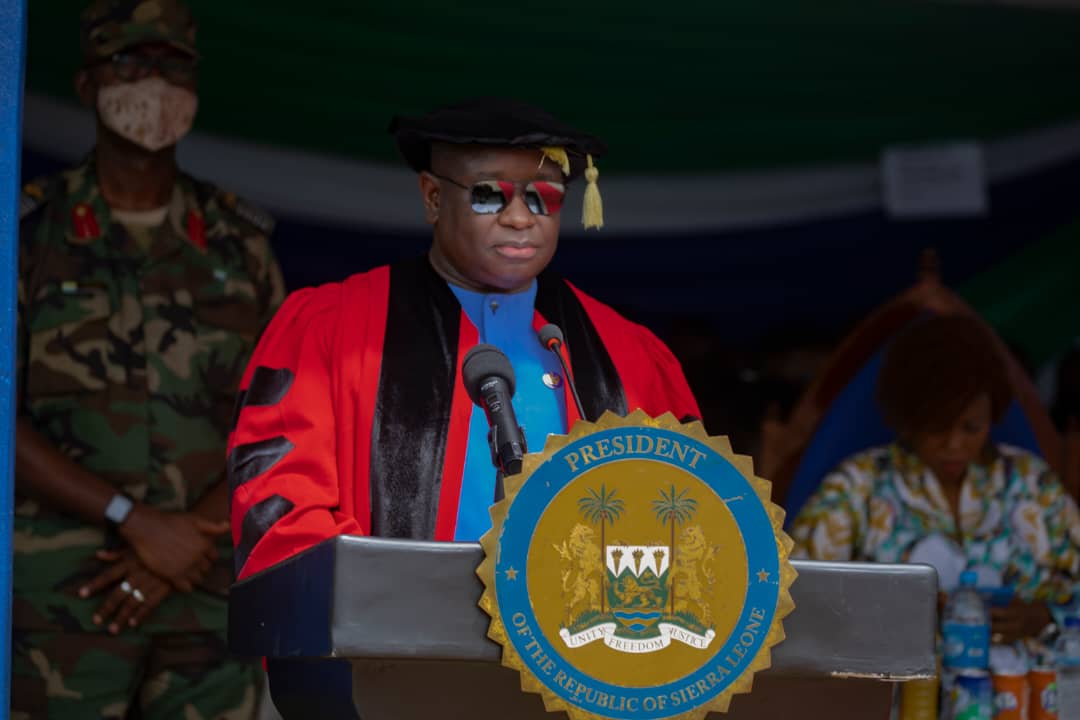President Dr Julius Maada Bio has inaugurated the Eastern Technical University Court in Kenema and decorated Dr Julius Fofana Sandi as its first Chancellor, in fulfillment of a promise to cease being a Chancellor of the Universities.
Paramount Chief of Nongowa Chiefdom, PC Sadiq Mattoe Kapuwa IV, welcomed the President and his entourage and expressed happiness for the privilege to upgrade the Eastern Polytechnic College to a technical university. He said that would make the learning environment in Kenema fit for purpose, adding that it would also bring development to the township and by extension the region.
“On behalf of the Council of Paramount Chiefs and the people of the eastern region, particularly the people of Kenema, I say thank you and God bless you all,” he concluded.

Vice Chancellor and Principal of the Eastern Technical University, Professor Mohamed Konneh, said the establishment of the institution was a distinguished milestone in the region’s history and for the indigenes of Kenema and its environs. He added that access to higher learning institutions would brighten the future of students and assure of the development of the country.
Professor Konneh further noted that the actualisation of the technical university resonated very well with President Julius Maada Bio’s quest to improve on the country’s Human Capital Development.
“On behalf of the staff, students and people of this town, we say thank you His Excellency and God bless the Eastern Technical University,” he concluded.
Minister of Higher and Technical Education, Professor Alpha Tejan Wurie, said that it was a joyous and happy day for academia and the people of the east, whom he said were the bastion and brain basket of the nation through the Bunumbu Teachers College, which started operations as a union college in 1922.

He noted that technical instructions had always aided the solving of societal problems, and, therefore, urged the university to consider ICT, mining engineering, solar engineering and water engineering that would help solve the many difficult challenges in the region and by extension the country.
“In academia, you have to create the enabling environment for students to do things on their own through innovation, and all forms of education where everyone’s creativity is harnessed and honoured to create their own job,” he noted.
In his statement, President Julius Maada Bio said that he couldn’t be more honoured to be at the new university because as the Sierra Leone Peoples’ Party and as a Government, they had thought it fitting, rationalised it, promised it and eventually delivered on it.
“But we have delivered several promises. In the People’s Manifesto, I promised to establish a Ministry of Technical and Higher Education that superintends tertiary and technical education in this country. We have delivered.
“We also promised to ‘establish a university system that employs its own leadership as chancellors’ – persons ‘with distinguished and proven records of higher education leadership, significant international clout and contacts (funding and research networks), and who are reform-minded.’ I promised to cease being a Chancellor of the Universities. That is a promise delivered,” he said.

He said going forward and as per the Universities Act of 2021, he had no desire to intervene in the general governance of those institutions but would support them to develop and produce the highest quality of graduates the country needed for sustainable and inclusive development.
“At this new university, I am informed that there will be a Faculty of Business Enterprise and Entrepreneurship Studies; a Faculty of Vocational and Skills Development Studies; a Faculty of Pure and Applied Sciences; a Faculty of Engineering and Innovation; a Faculty of Development Agriculture and Natural Resource Management, a Faculty of Health Sciences and Disaster Management Studies, and last and definitely not least, a Faculty of Education.
“The scope covers translational sciences and innovation, healthcare service training and delivery, engineering, agriculture and agribusiness, natural resource management, disaster management, entrepreneurship, and teacher training and development.
“This is education that develops human capital, creates and drives a new kind of knowledge-based economy, and nurtures opportunity and creates private sector jobs. Ours is a growing economy with great potential and only well-trained people can drive that development. In a week, I will be at COP26 to discuss how we can contend with climate change, build resilience, and create a green economy. That new economy requires new skill sets. Those skillsets can be quickly developed within a technical university,” he said.











